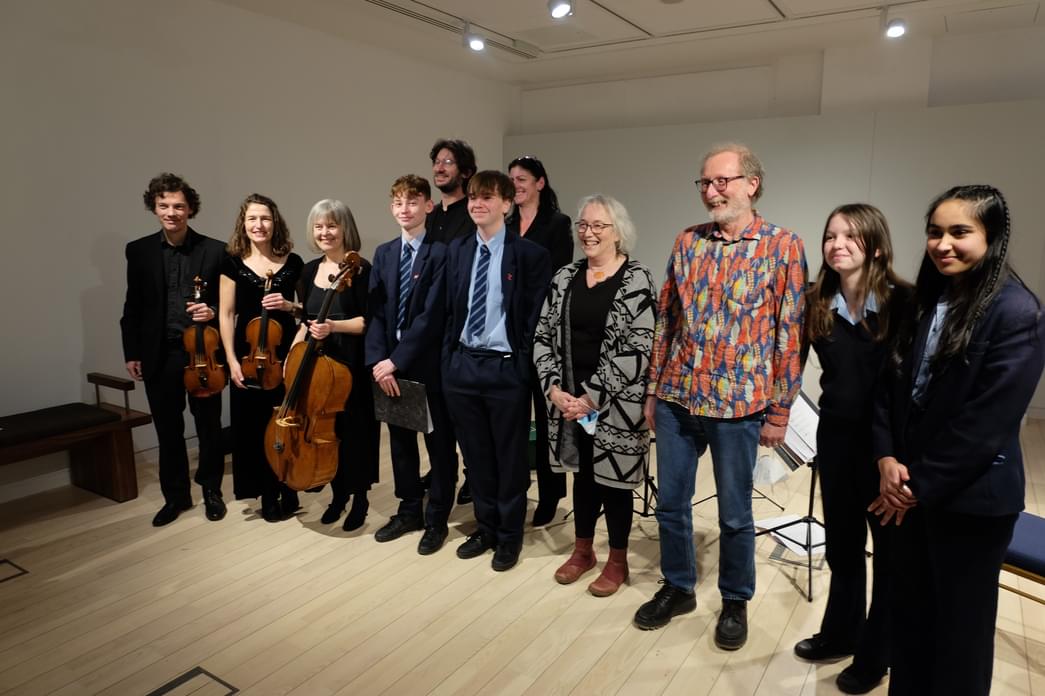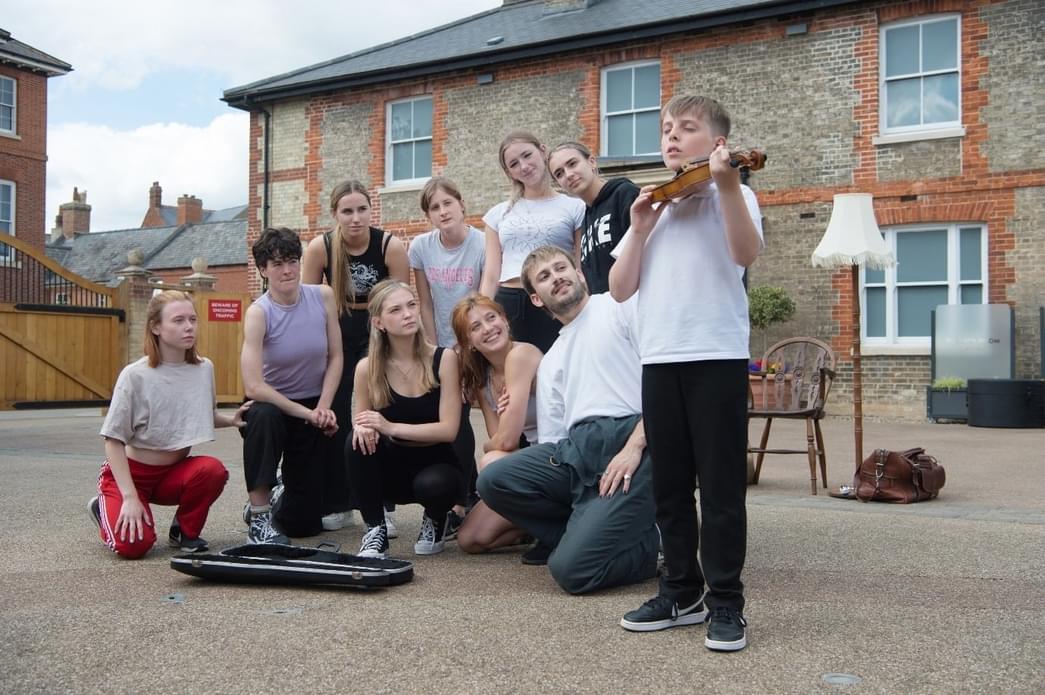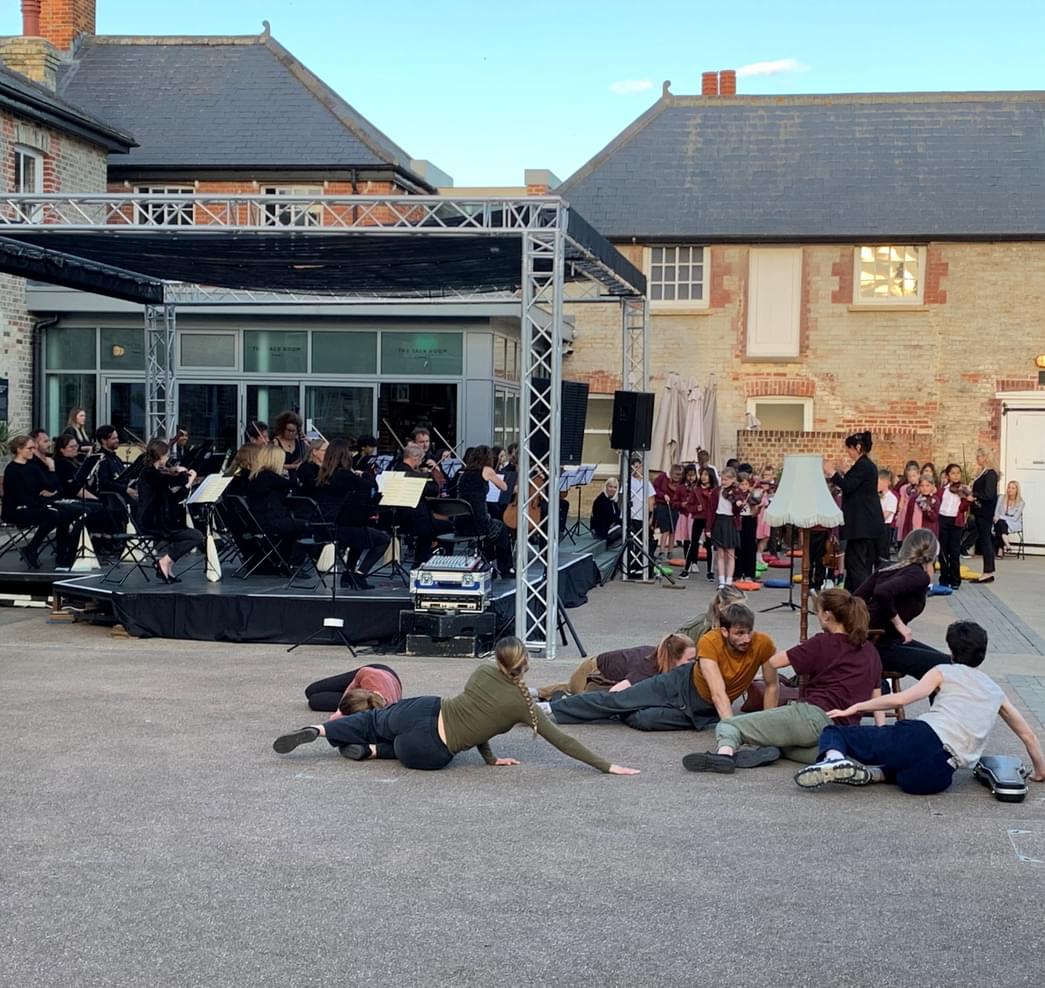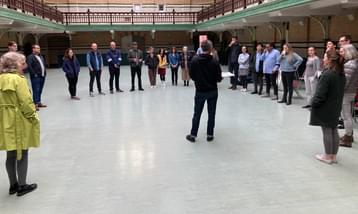We Have to Move on - persecution, migration and hope
NewsNews Story
In recent years, Orchestras Live has become increasingly involved in heritage projects of various kinds. This may well be because of the rich diversity of our partnerships across the country, covering a plethora of rural, coastal and urban communities where heritage is important to people’s view of where they live, both the historical heritage of the past and the living heritage of today. This is integral to the place-based agenda informing arts and culture, but also part of a growing realisation that people’s stories are everywhere and are what make each community distinctive.
The latest heritage project co-produced by Orchestras Live started to take shape in 2020 when Suffolk Archives began exploring a surprising piece of Newmarket’s history which had been virtually forgotten. Between 1939 and 1946, Trainer’s House, which is today part of the National Horseracing Museum, became a home for a group of Jewish refugees who had fled the Nazi regime. Their story came to light thanks to a remarkable memoir written by one of the group, Fritz Ball, a lawyer and talented cellist from Berlin. Fritz’s granddaughter, Sandra Ball, shared the memoir with Suffolk Archives, which set in train a partnership with Orchestras Live, Suffolk Music Education Hub and the National Horseracing Museum to explore the story with local people, through research, music, spoken word, dance and film.

The project began with young actors at Newmarket Academy rehearsing and performing excerpts from the memoir, interspersed with music known to have been played by Fritz, performed by a string quartet from Britten Sinfonia. This led to a public concert in a gallery at the Museum in January, with a filmed version also made.
For the second stage of the project, we used broader themes of ‘migration, journey and home’ as the starting point for creativity with local groups of young people. Composer Sarah Freestone worked with early-stage violinists at Houldsworth Valley Primary Academy and members of the West Suffolk Youth Orchestra, developing material which was orchestrated into a ten-minute piece that they could perform alongside a larger ensemble from Britten Sinfonia.
Learning about a specific individual and their experiences during the Second World War has given me a greater understanding of the experiences of persecuted groups during war and migration.
~ Young musician
At the same time, choreographer Tom Hobden from We Are UNIT worked with dance students from Abbeygate Sixth Form College and emerging dance artists from the DanceEast Kickstart programme, informing and responding to the new music as it evolved, creating their own dance narrative.
Overall, I really enjoyed my time working on this project and helping to create a dance that had such a deep meaning. I also enjoyed experiencing dancing with a live orchestra which I had never experienced before.
~ Young dancer
Everything culminated in early July with an outdoor performance in the King’s Yard at the Museum, featuring the premiere of We Have To Move On as well as orchestral music including a movement from Haydn’s Cello Concerto No. 2 – Fritz’s favourite piece. Nearly 50 young musicians and dancers were involved in the performance, which was also filmed as a legacy resource for Suffolk Archives’ collection about this piece of local history.
I didn't know what to expect and was pleased that I had attended. I hadn't thought much about the war as it was before I was born but I was moved by what the music and dancers had portrayed about the times people had to endure and how music had helped them. It brought a tear to my eye in a good way.
~ Audience member
In a parallel strand, the Museum made an exhibition about Fritz and other refugees which has been displayed in one of the gallery spaces and seen by several thousand visitors. It’s likely this will become a touring exhibition and learning resource that can take the story to other parts of the country. Another strand saw students at Newmarket Academy undertake their own historical research project, for which they won the Dora Love prize, a Holocaust awareness scheme run by the University of Essex.

Sandra Ball was part of the steering group that supported the entire project over two years and was deeply moved by the way her family story captured the imagination of so many people.
The many creative and legacy outcomes are wonderful, of course. What stands out for me, though, is the way a human story came to life so vividly for all of us involved in devising and achieving the project. After reading Fritz’s memoir, selecting passages to be spoken by young actors, and using the subject matter to inform the co-curation work, it felt like we had got to know him personally. Seeing the large ensemble of young and adult musicians performing in the stable yard which would have been the view from the Trainer’s House where the refugees lived, and seeing young dancers appear through the front door where Fritz would have walked, carrying his cello, on his way to perform in the nearby church or in people’s houses, was magical and moving.

As Sandra said, “Each of us have stories that need telling, just like my Grandfather’s. This project is proof of the power of storytelling. Fritz and Eva [his wife] were just regular people. Nothing special. They just happened to live and to have survived at the cusp of history, and Fritz had the foresight to write his memories down. That has opened up a box of treasures for my family and for Newmarket.”
We Have To Move On will indeed move on in terms of its legacy and the inspiration it has provided for many people in the Newmarket area. This extraordinary story of music being a reason to survive, and our contemporary interpretations of that story, are now part of the living heritage of this Suffolk town.
